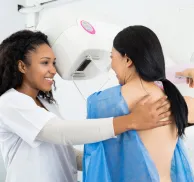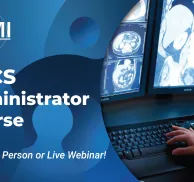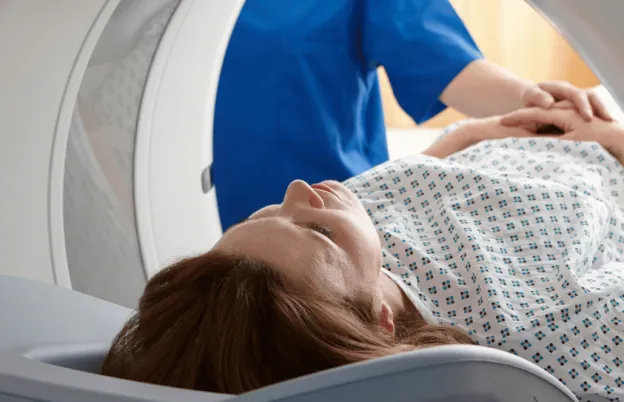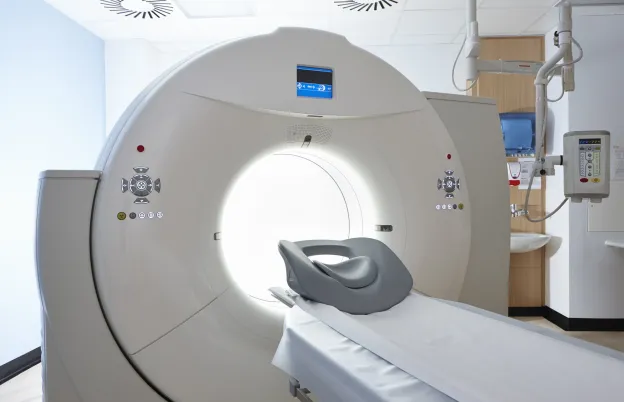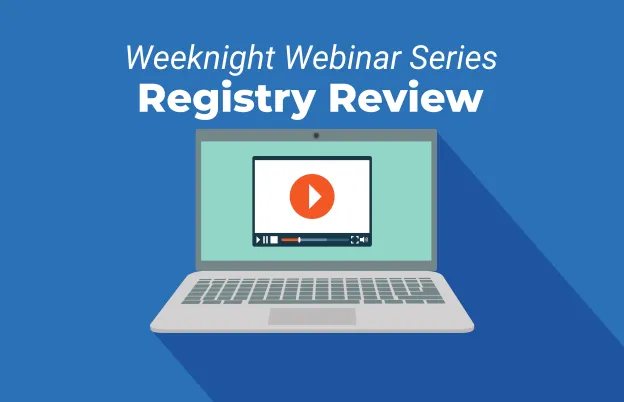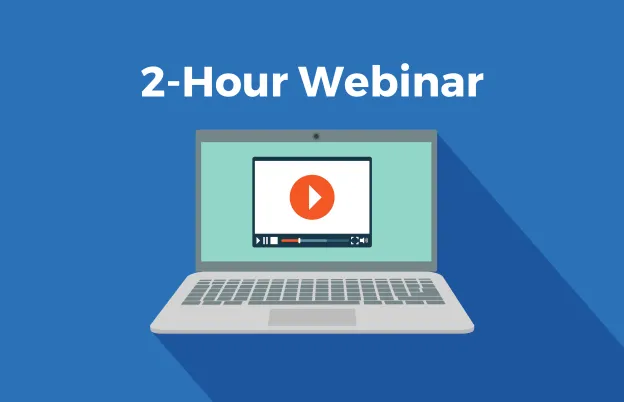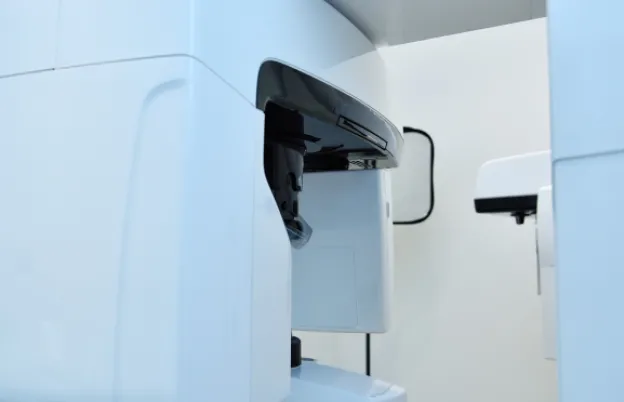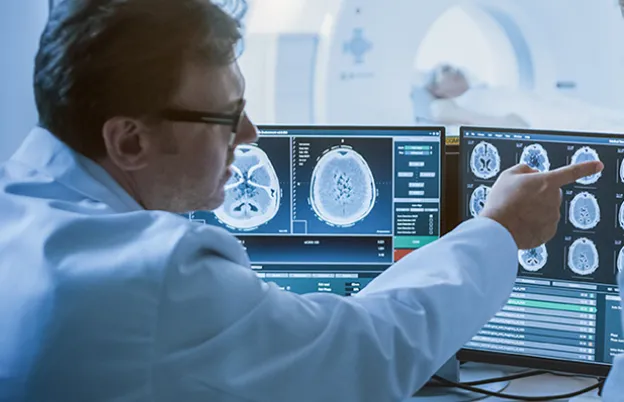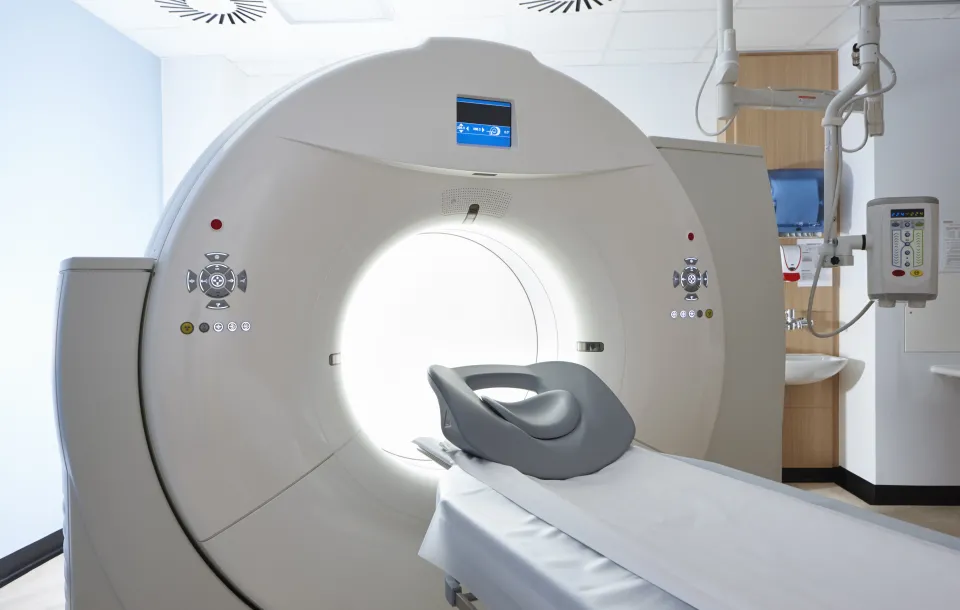
Hands-On CT Physics Workshop
About this Program
Next Program in 2024. The technology of computed tomography has made significant strides in the past several years. Clinical medical physicists have an important role to play in supporting facilities seeking accreditation and meeting various regulatory requirements for this technology. This workshop will emphasize the testing procedures and QA measurements required for accreditation and performance assessments.
Attendees will be assigned to small groups and rotate through the hands-on labs. The hands-on lab sessions will be facilitated by workshop faculty members and will be conducted on live CT units.
Lab Sessions
Lab A: ACR Image Quality
Lab B: Dose Measurements
Lab C: CT Barrier Survey
Educational Objectives
At the conclusion of this workshop, participants will be able to:
- Recall the technology of multi-detector CT units.
- Define how radiation dose from CT units is measured and controlled.
- Outline the development and optimization of CT protocols.
- Design an effective QC program incorporating the ACR and Joint Commission requirements.
- Understand the dynamics of spectral CT and the role it plays in the clinical setting.
- Recognize the various types of CT artifacts, review the causes of these artifacts and obtain knowledge on how to avoid or resolve CT artifacts.
- Obtain knowledge on CT shielding, testing and scanner measurements.
~ AAPM endorses the educational component of this program. ~
It does not, however, endorse any
product used or referred to in the program.
Schedule
In-person and live webinar options
Workshop Schedule:
Day One
7:30 am Registration
8:00 am Introduction to CT- Review of Basic Principles ……….…Dong
- Major hardware components
- Review of CT scan modes
- Review of CT image acquisition parameters
- Image reconstruction
- CT image quality
9:15 am Performance Testing ……….…Fong
ACR Accreditation of CT Facilities & Joint Commission Requirements
- Application Procedures
- Testing Requirements
- Avoiding Pitfalls for A Successful Submission
- Handling Failures
- ACR on-site Accreditation Inspections
Break 10-minutes
- Physicist annual survey
- Technologist QC Procedures
11:15am Considerations for Measuring CT Dose ……….…Dong
- CTDI and DLP definitions
- Measuring dose in CT
- Future CT dose measurement methods
12:00 pm Lunch break
1:00 pm Group 1 Lab A ---ACR Image Quality ……….…Fong
Group 2 Lab B ----ACR dose measurement ……….…Dong
2:30pm Group 2 Lab A ---ACR Image Quality……….…Fong
Group 1 Lab B ----ACR Dose Measurement ……….…Dong
4:00pm - CT shielding design, testing & scanner measurements ……….…Dong
- Shielding Design Considerations
- Shielding Software
- Shielding Testing
- Scanner scatter measurements
5:30pm - Informal discussion and break
6:00pm - Adjourn for the day
Day Two
7:30 am Continental breakfast
8:00 am Optimization of CT Protocols and Dose ……….…Dong
- Strategies for balancing image quality and dose based on patient populations and clinical tasks
- Automated/Semi-automated technique selection tools
- Reconstruction considerations: slice thickness, overlap, filters
9:30 am Informal discussion and break
9:45 am CT Artifacts: Recognition and Resolution ……….…Fong
- Types of Artifacts
- Causes of Artifacts
- Avoiding/Correcting Artifacts
10:45 am Tracking and Reporting CT Doses ……….…Dong
- The Joint Commission Imaging Standards for CT
- NEMA XR-29-2013 Requirements
- Patient/Fetal Doses
- Why and how to track CT dose
- Reporting and reducing dose outliers
- Selecting dose tracking software
12:00 am Group 1 and 2 Lab C CT barrier survey ……….…Fong/Dong
12:30 pm Q&A session with faculties
1:00pm Adjourn for the day
Audience
Who should attend?
This workshop is for medical physicists and others wanting an opportunity for hands-on instruction and experience in the operation and testing of CT units. It will be assumed that attendees have previous knowledge of CT basic principles and applications.
This workshop would also be appropriate for experienced CT Technologists interested in expanding their QC knowledge.
Program Faculty
Meet your presenter(s)
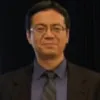
Frank Dong
PhD, DABR, FAAPM
Frank Dong, PhD, DABR, FAAPM, is a professor of Imaging Physics and section chief of Radiological Physics at UT MD Anderson Cancer Center. Dr. Dong received his Ph.D. degree in Medical Physics from the University of Wisconsin-Madison. Dr. Dong’s specialty is in the field of CT image quality, radiation dosimetry, and advanced reconstruction algorithm. He currently serves as the director for AAPM Diagnostic Review Courses. Dr. Dong has been teaching MTMI’s CT hands-on workshop since 2014.
Grant Fong
MS, DABR, DABMP
Diagnostic Medical Physicist
Imaging Institute
Cleveland Clinical Foundation
Credits
Accredited training programs
CAMPEP
This program provides 12.58 hours of continuing education for medical physicists. The program has been approved by CAMPEP for Medical Physics Continuing Education Credit (MPCEC) for qualified medical physicists.

ASRT Category A
This program provides 15.5 hour(s) of Category A continuing education credit for radiologic technologists approved by ASRT and recognized by the ARRT and various licensure states. Category A credit is also recognized for CE credit in Canada. You must attend the entire program to receive your certificate of completion.
Tuition
Convenient payment options available
| Audience | Price | Early Price | Member Price | Member Early Price |
|---|---|---|---|---|
| Physicist | $1,165.00 | $1,070.00 | $1,120.00 | $1,025.00 |
| Technologist | $879.00 | $829.00 | $849.00 | $809.00 |
Early Pricing Guidelines
Qualifying 'Early' registrations must be made at least 21 days in advance for the program.
Cancellation Policy
“Hands-On” Courses
Refunds, minus a $50 processing fee, will be granted for cancellations received prior to 10 days before the program. Cancellations received within 10 days of the program will receive a credit toward a future MTMI program, minus the $50 processing fee. No refunds will be made after the program starts. MTMI reserves the right to cancel any scheduled program because of low advance registration or other reasons. MTMI’s liability is limited to a refund of any program tuition paid. MTMI recommends that attendees use refundable airline tickets. In case of cancellation of a program for any reason, MTMI is not responsible for travel costs incurred by attendees including non-refundable airline tickets.
